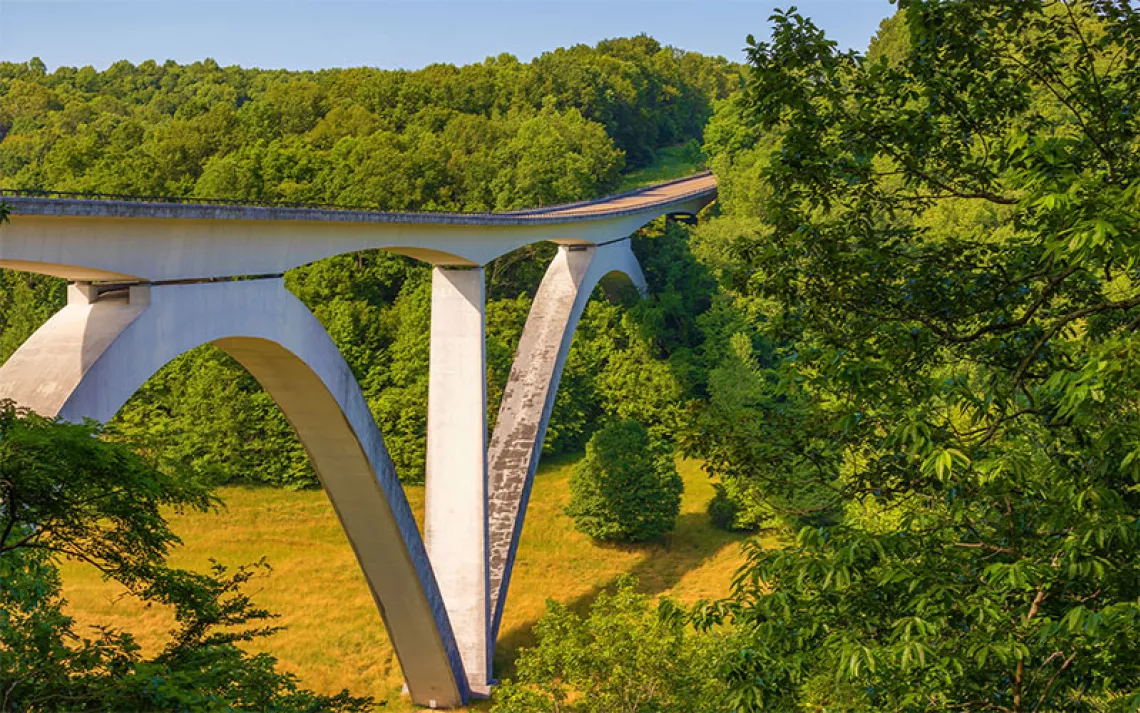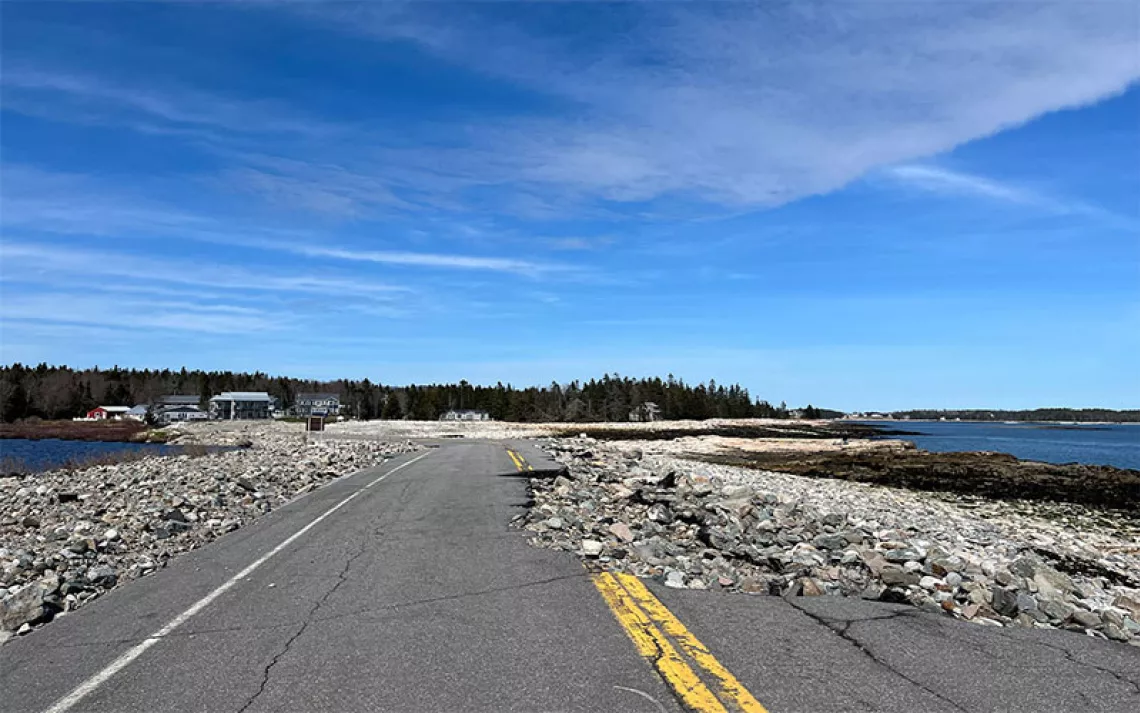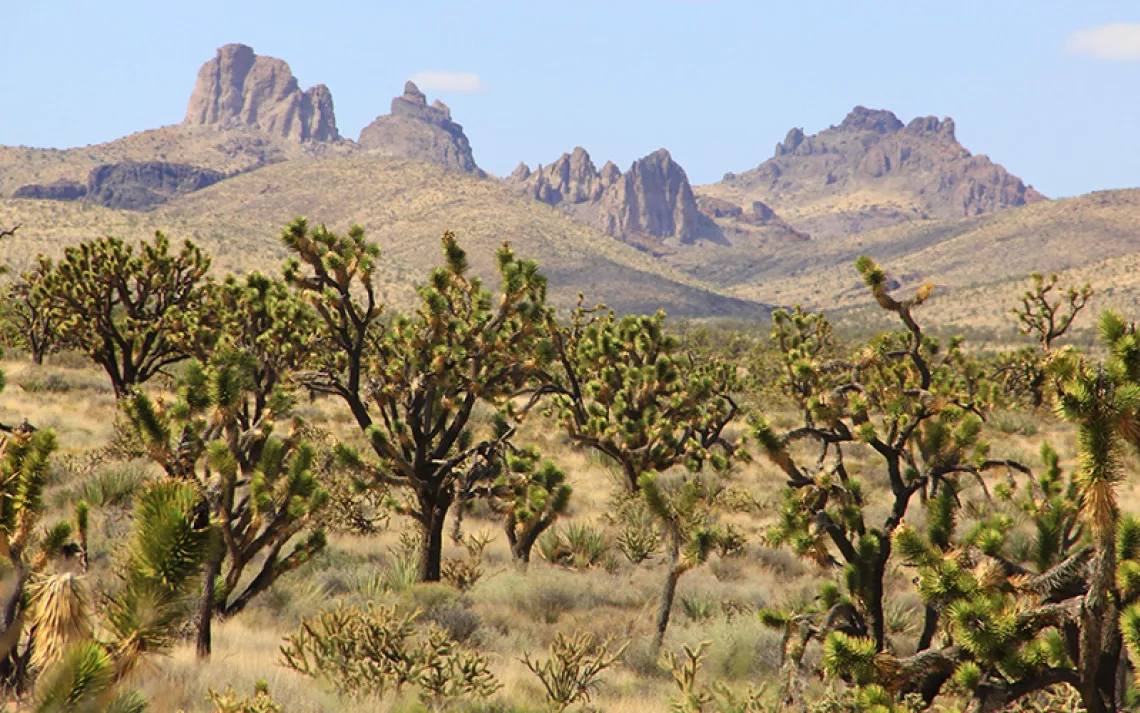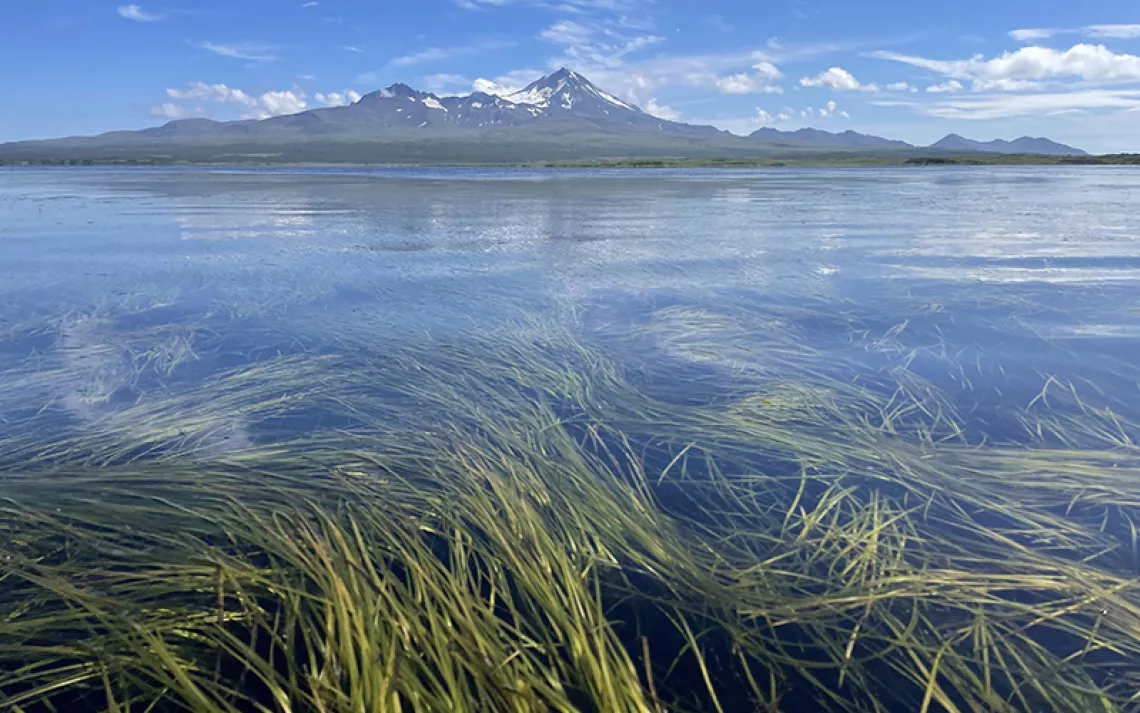The Shutdown Is Proof: Everyone Thinks Their Dog Is Special
Keeping the national parks open has consequences, political and otherwise
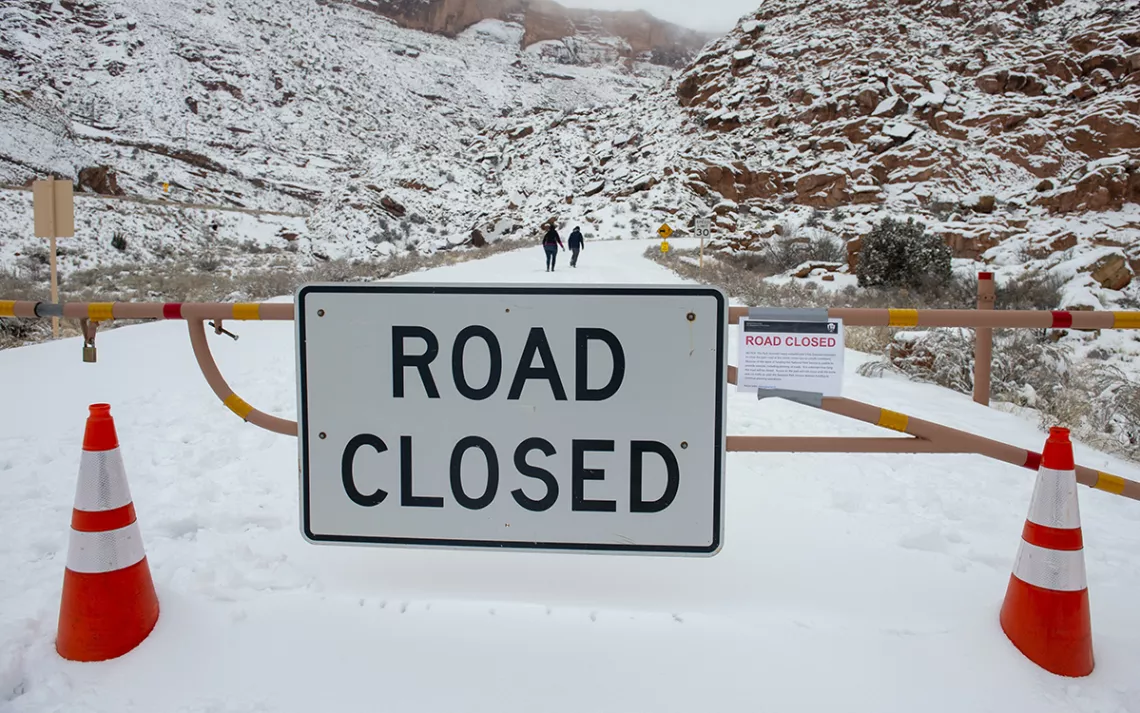
Arches National Park, Utah, during the shutdown. | Photo by Rick Egan/AP
The federal government had been largely shut down for nearly a week, but in the days after Christmas there were so many cars headed into Joshua Tree National Park that there were traffic jams along the way. When Heidi Lypps drove through the front gate, though, she could see that the windows to the ranger station were boarded up.
The park was bustling anyway. “I saw everyone from hardcore grizzled backpackers to weird desert rats to what I can only assume were LA people walking around taking selfies in vinyl pants,” said Lypps. The absence of rangers did not seem to discourage adventurous behavior. A group had strung up a slackline a hundred feet in the air, stretched between two boulders. She saw one of them fall—but they stopped in midair and she realized they were tied in, per Joshua Tree regulations. They hung there high in the air at the exact midpoint of the slackline while the rest of the group conferred about how to get them down.
Everywhere were signs of visitors trying to do right by the nature they were there to admire. Ryan Zinke, former interior secretary and current subject of several ethics inquiries, had told park visitors to “grab a trash bag” on their next visit to a shutdown national park. In reality, many visitors—at least to Joshua Tree—didn't need this kind of lecture. “I was disappointed that we could not go into the visitor center, do the junior ranger program, and get guidance on what kind of hiking was good for the needs of our group” said Renee Jansen, who also visited Joshua Tree over the Christmas holiday. “But all the bathrooms were as clean as you would expect them to be. There were handmade posters that I think were put up by the climbing community—'Take care of the park. Pack out your trash.' ”
“The spectacle of people trying to get out and enjoy one of the few non-terrible places in America, while the park is sort of a wild west political pawn was very strange indeed,” said Lypps. “But very hope-inducing to see that people had internally placed restraints and care.”
Unfortunately, there were also signs that, in the absence of rangers, affection for the landscape only went so far. Cars and campsites were scattered in all sorts of strange locations, though Lypps and Jansen didn’t see signs of the off-roading and vandalism that later prompted officials to try to close the park entirely. Dogs, normally forbidden on trails, were everywhere. Lypps and her friends hiked out to an oasis, only to find an off-leash dog frolicking in it. “My dog is fine!” yelled the dog’s owner, in exasperation when a member of Lypps's group suggested that the park’s desert bighorn sheep needed the oasis more than their dog did. “My dog is FINE!”
When things stop working, that is when we begin to see them for what they are. It would be nice if it wasn’t true—if systems, once set in motion, remain that way. But the federal shutdown is an education in just how much of what we take for granted in America is actually someone’s job.
The FBI, the Secret Service, TSA, the coast guard, and air-traffic controllers are going without pay (the coast guard has provided its employees with advice on dealing with debt collectors during the shutdown). National museums like the Smithsonian are closed. The FDA is delaying food inspections. The USDA is scrambling to keep food stamps and other nutrition programs funded. Immigration courts are closed, disaster relief programs and domestic violence shelters are running out of funds, firefighter training and wildfire planning is on hold, environmental research and remediation of some Superfund sites has halted, people can’t report identity theft to the FTC, mortgages are harder to get and refinance, companies aren’t going public on the stock exchange. Somehow, however, the historic clock tower over Trump International Hotel in D.C. remains mysteriously staffed with park rangers.
But, with their official role as "America's Backyard," our national parks remain the most visible sign of the consequences of the shutdown. Some have speculated that acting interior secretary David Bernhardt’s directive to keep national parks open during the shutdown—even if it means spending all the money collected from entrance fees—is an attempt to keep political heat off the Trump administration. During the last long-term shutdown (16 days in 2013) all of the national parks closed, only reopening in areas where the state governments promised to cover the cost of running them.
Former Park Service director Jon Jarvis remembers how, after that shutdown ended, Republicans on the House Oversight and Natural Resources Committees accused him of shuttering the parks for political reasons. "I got grilled on the hill for five hours over it,” Jarvis told the National Parks Traveler. “And I vehemently disagreed with that. It was a stewardship act. We felt that without the employees there to manage and provide stewardship, the parks would be vulnerable to impact.”
This time, the consequences of keeping the parks open and accessible have been far reaching. In parks where trash bins are overflowing, like Yosemite, a new generation of bears could begin to haunt campgrounds and trailheads, forcing park staff to euthanize them. Entrance fee money spent on emergency park maintenance instead of the long-term infrastructure projects that money was budgeted for could affect the parks for years to come. So will the hole in the budget left by entrance fees that aren’t being collected in the first place, because there’s no staff to collect them.
As time goes on, it will get harder for volunteers to make up for missing park staff. Already, toilets are reportedly being closed in Joshua Tree because, while volunteers can replace toilet paper, they can't readily empty a pit toilet once it fills up. As this shutdown drags on, it’s possible that the Interior Department’s attempt to keep the parks open will cause as much political blowback as the previous administration’s decision to close them. “Nothing made the political personal,” says Lypps, “like going through the shuttered entrance with my pointless national parks pass buried in my wallet.”
 The Magazine of The Sierra Club
The Magazine of The Sierra Club
